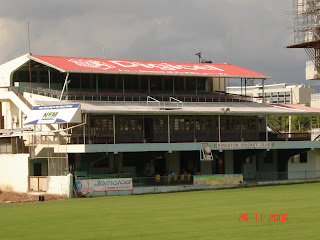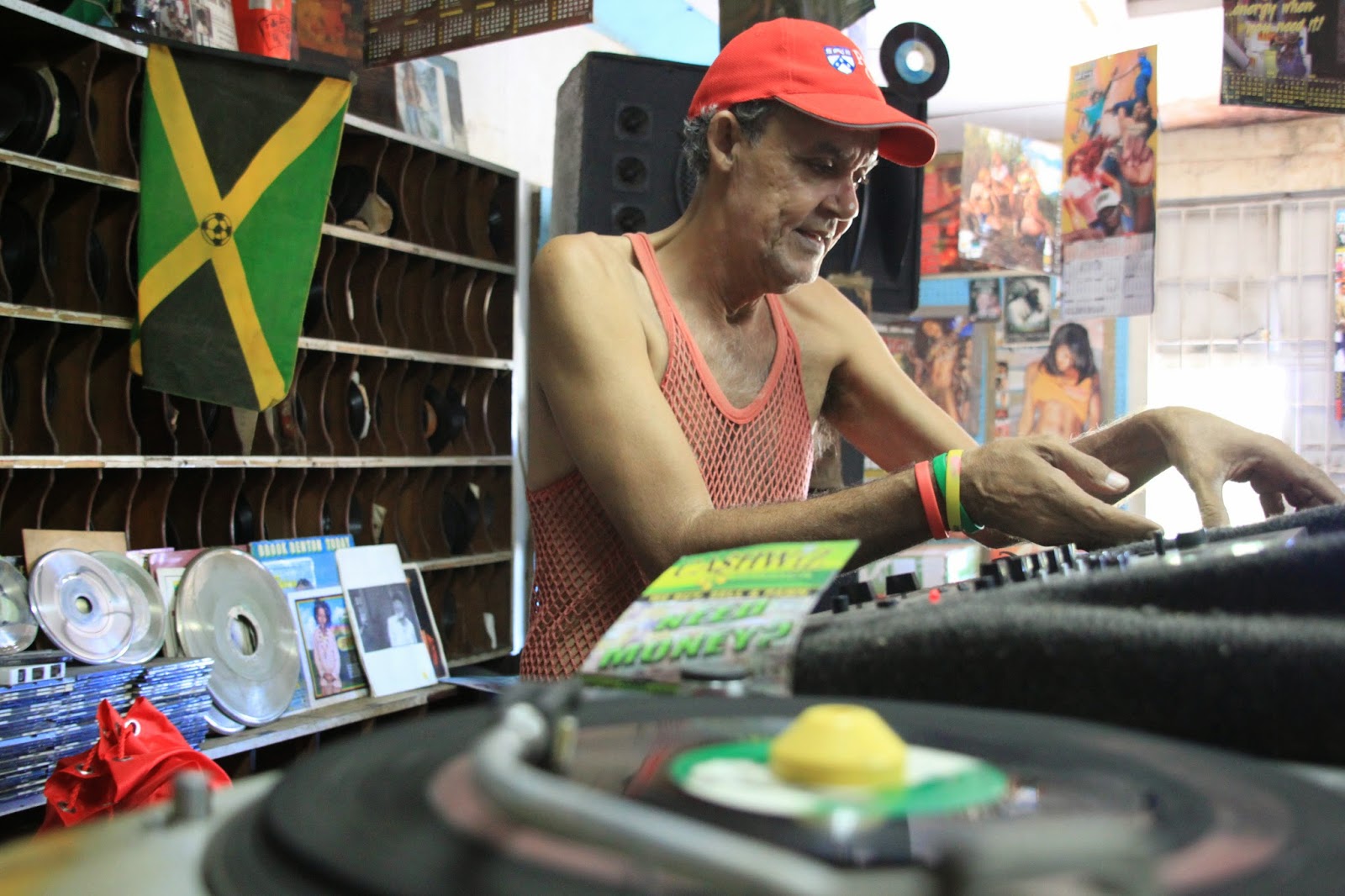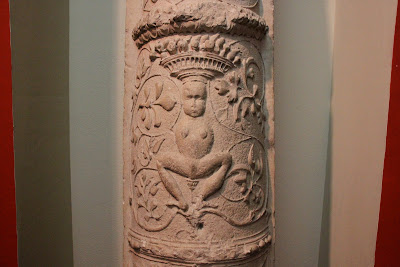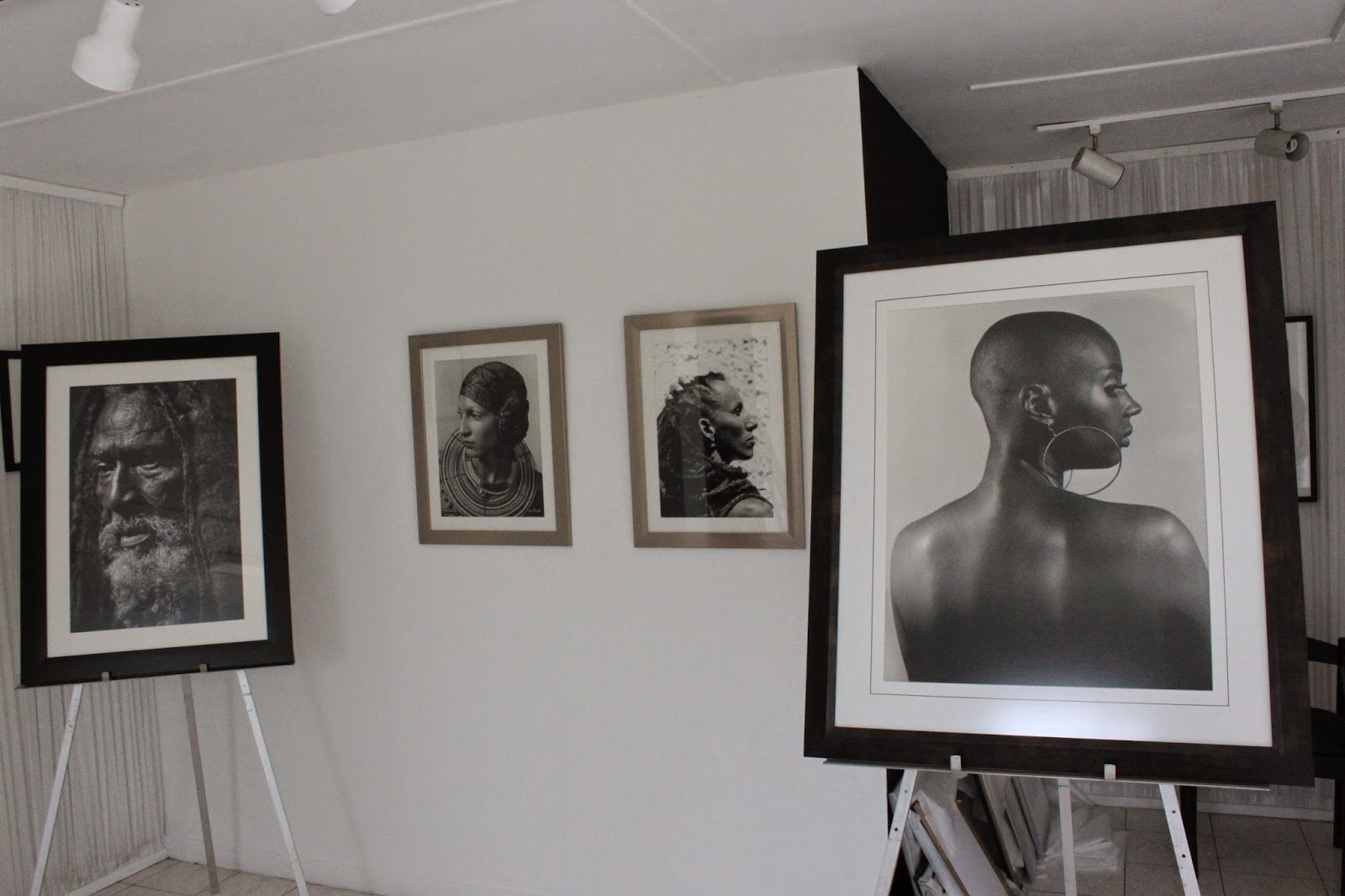Last minute culture
Blast from the past...2007 Cricket World Cup
Run-down Jamaica fixes its windows, paints its doors, repairs its roads, lights its streets, as the big carnival down the way hits the Caribbean
Amitabh Sharma Kingston, Jamaica
Published: HardNews
The road to Sabina Park meanders through communities living in narrow by-lanes, eking out a living selling fruits, drinks and newspapers from their wayside shacks and carts. There is a flurry of activity, the Jamaica Defence Force personnel have descended in the periphery of the venue armed with shovels, roadrollers and concrete mixing machines helping the community to repave the sidewalks, fill potholes and give a fresh coat of paint to the facades.
A kilometre away, Jeff, chisel-figured and bare-chested, washes cars to earn his bread. "World Cup," he remarked, "I know there is a lot of excitement, but for me life will just go on."
With the world’s largest cricketing tournament barely two weeks away, work is on full swing at the Sabina Park, men working overtime to give the final touches to catch the deadline. Elsewhere, Kingston paints a depressing picture; the excitement attached to a tournament of this magnitude is missing.
"The requirements of the World Cup have brought out our deficiencies as a city and a country," said Robert Bryan, executive director, Jamaica Cricket 2007 Ltd, the local organising committee for the ICC Cricket World Cup 2007. The mayor of Kingston, Desmond McKenzie, deplored the state of the city as a national disgrace and said only about a third of the planned face-lift projects were likely to be completed on time.
Speaking in a programme on cleaning up the city for the big event, he lamented that he has a budget of only Jamaican $28 million. He had originally proposed to spend Jamaican $191 million. The point is that keeping the city in relative cleanliness ought not to be an overly expensive business, the editorial in Jamaica's leading newspaper, The Gleaner, said.
The problem faced by those who are running the show is that they have been unable to break free of the old structures; most of the cash allocated to projects does not go towards getting the job done. Such systems may be good for the distribution of pork, but not for efficiency, The Gleaner said in an editorial.
Jamaica, which boasts of 3 million tourist visits a year, is plagued with violence; more than 100 people have been murdered since the start of 2007, most of them in Kingston.
"We all have a choice: where will you be," remarked Bryan recently at a public meeting, "tearing Jamaica apart or taking Jamaica to heart? What is the story you want the world to see and hear when they visit Jamaica or watch us on television?"
Jamaica is looking at the event as a long- term marketing initiative. The cricketing extravaganza takes off on March 11 at the Trelawny Multi Purpose Stadium at the periphery of Falmouth in the northern end of the island nation. "The sighting of the stadium on the northwestern section of the island is strategic," said Bryan. "The town of Falmouth will benefit from this facility being located at their door step."
During the event, Falmouth is proposed to be transformed into a ‘walking museum’ with guided tours. The residents are also likely to benefit from a ‘Bed and Breakfast Programme’.
Meanwhile, the implementation of the CARICOM visa is drawing criticism from most quarters. Under the new visa regime, nationals from all countries except France, the Netherlands, the UK and US and their dependent territories, as well as Canada, Germany, Japan, Italy, Ireland, South Africa, are required to have a visa for travel to the region in order to access the CARICOM single-domestic space during the World Cup.
The business community has its reservations: "It is easier to go to the Whitehouse than to travel to Jamaica," said Manuel Ghelman, an apparel merchant at Novatex International in Panama who supplies stores in Jamaica. Talking to the The Observer, a Jamaican daily. Ghelman said that between the visa charge and that of sending the documents by DHL, he had to spend upwards of US $200.
Neil Forrester, general manager of the Antigua Hotels and Tourism Association, said that the visa requirement is an inconvenience, compounded by the abject lack of information. "What I see from the outside is complete inefficiency in the way it is being dealt with. People can’t get their visas, they can’t seem to get in on time and no one seems to know what’s going on."
In spite of the odds, the organisers are putting their best efforts and resources for the cricket carnival. With the heat now becoming intense, tucked in New Kingston, the business district of the city, a group of men and women are working round the clock at the local organising committee office to tie up the logistics. "It has been a tough year," said Pauline Nelson, communications manager, Jamaica Cricket 2007 Ltd. "From sleepless nights to living out of the suitcase, we are pooling our best resources for this event."
An estimated 15,000 visitors are expected to visit Jamaica during the event and around 2.2 billion viewers will be glued to their television screens. "It is our ‘last-minute’ culture," said Nelson. "Things will happen, you will see."
Meanwhile, Jeff is happy about what is being done to his neighbourhood. "Thank god for cricket, the roads are finally being repaired and lighted. That’s a big relief man."
Run-down Jamaica fixes its windows, paints its doors, repairs its roads, lights its streets, as the big carnival down the way hits the Caribbean
Amitabh Sharma Kingston, Jamaica
Published: HardNews
The road to Sabina Park meanders through communities living in narrow by-lanes, eking out a living selling fruits, drinks and newspapers from their wayside shacks and carts. There is a flurry of activity, the Jamaica Defence Force personnel have descended in the periphery of the venue armed with shovels, roadrollers and concrete mixing machines helping the community to repave the sidewalks, fill potholes and give a fresh coat of paint to the facades.
A kilometre away, Jeff, chisel-figured and bare-chested, washes cars to earn his bread. "World Cup," he remarked, "I know there is a lot of excitement, but for me life will just go on."
With the world’s largest cricketing tournament barely two weeks away, work is on full swing at the Sabina Park, men working overtime to give the final touches to catch the deadline. Elsewhere, Kingston paints a depressing picture; the excitement attached to a tournament of this magnitude is missing.
"The requirements of the World Cup have brought out our deficiencies as a city and a country," said Robert Bryan, executive director, Jamaica Cricket 2007 Ltd, the local organising committee for the ICC Cricket World Cup 2007. The mayor of Kingston, Desmond McKenzie, deplored the state of the city as a national disgrace and said only about a third of the planned face-lift projects were likely to be completed on time.
Speaking in a programme on cleaning up the city for the big event, he lamented that he has a budget of only Jamaican $28 million. He had originally proposed to spend Jamaican $191 million. The point is that keeping the city in relative cleanliness ought not to be an overly expensive business, the editorial in Jamaica's leading newspaper, The Gleaner, said.
The problem faced by those who are running the show is that they have been unable to break free of the old structures; most of the cash allocated to projects does not go towards getting the job done. Such systems may be good for the distribution of pork, but not for efficiency, The Gleaner said in an editorial.
Jamaica, which boasts of 3 million tourist visits a year, is plagued with violence; more than 100 people have been murdered since the start of 2007, most of them in Kingston.
"We all have a choice: where will you be," remarked Bryan recently at a public meeting, "tearing Jamaica apart or taking Jamaica to heart? What is the story you want the world to see and hear when they visit Jamaica or watch us on television?"
Jamaica is looking at the event as a long- term marketing initiative. The cricketing extravaganza takes off on March 11 at the Trelawny Multi Purpose Stadium at the periphery of Falmouth in the northern end of the island nation. "The sighting of the stadium on the northwestern section of the island is strategic," said Bryan. "The town of Falmouth will benefit from this facility being located at their door step."
During the event, Falmouth is proposed to be transformed into a ‘walking museum’ with guided tours. The residents are also likely to benefit from a ‘Bed and Breakfast Programme’.
Meanwhile, the implementation of the CARICOM visa is drawing criticism from most quarters. Under the new visa regime, nationals from all countries except France, the Netherlands, the UK and US and their dependent territories, as well as Canada, Germany, Japan, Italy, Ireland, South Africa, are required to have a visa for travel to the region in order to access the CARICOM single-domestic space during the World Cup.
The business community has its reservations: "It is easier to go to the Whitehouse than to travel to Jamaica," said Manuel Ghelman, an apparel merchant at Novatex International in Panama who supplies stores in Jamaica. Talking to the The Observer, a Jamaican daily. Ghelman said that between the visa charge and that of sending the documents by DHL, he had to spend upwards of US $200.
Neil Forrester, general manager of the Antigua Hotels and Tourism Association, said that the visa requirement is an inconvenience, compounded by the abject lack of information. "What I see from the outside is complete inefficiency in the way it is being dealt with. People can’t get their visas, they can’t seem to get in on time and no one seems to know what’s going on."
In spite of the odds, the organisers are putting their best efforts and resources for the cricket carnival. With the heat now becoming intense, tucked in New Kingston, the business district of the city, a group of men and women are working round the clock at the local organising committee office to tie up the logistics. "It has been a tough year," said Pauline Nelson, communications manager, Jamaica Cricket 2007 Ltd. "From sleepless nights to living out of the suitcase, we are pooling our best resources for this event."
An estimated 15,000 visitors are expected to visit Jamaica during the event and around 2.2 billion viewers will be glued to their television screens. "It is our ‘last-minute’ culture," said Nelson. "Things will happen, you will see."
Meanwhile, Jeff is happy about what is being done to his neighbourhood. "Thank god for cricket, the roads are finally being repaired and lighted. That’s a big relief man."





Comments
Post a Comment